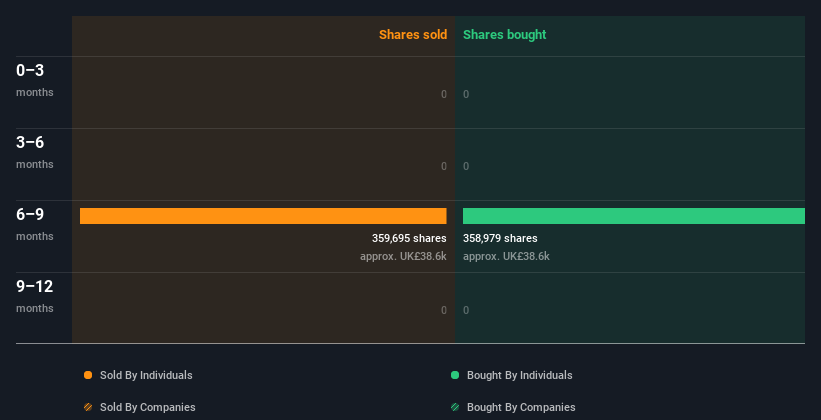Stock Analysis
- United Kingdom
- /
- Capital Markets
- /
- AIM:CAV
This Cavendish Financial Insider Increased Their Holding By 12% Last Year

From what we can see, insiders were net buyers in Cavendish Financial plc's (LON:CAV ) during the past 12 months. That is, insiders acquired the stock in greater numbers than they sold it.
While we would never suggest that investors should base their decisions solely on what the directors of a company have been doing, we would consider it foolish to ignore insider transactions altogether.
See our latest analysis for Cavendish Financial
The Last 12 Months Of Insider Transactions At Cavendish Financial
The insider Andrew Murray Darley made the biggest insider purchase in the last 12 months. That single transaction was for UK£39k worth of shares at a price of UK£0.11 each. So it's clear an insider wanted to buy, even at a higher price than the current share price (being UK£0.10). While their view may have changed since the purchase was made, this does at least suggest they have had confidence in the company's future. We always take careful note of the price insiders pay when purchasing shares. Generally speaking, it catches our eye when an insider has purchased shares at above current prices, as it suggests they believed the shares were worth buying, even at a higher price. Andrew Murray Darley was the only individual insider to buy shares in the last twelve months. Notably Andrew Murray Darley was also the biggest seller.
You can see a visual depiction of insider transactions (by companies and individuals) over the last 12 months, below. By clicking on the graph below, you can see the precise details of each insider transaction!

There are always plenty of stocks that insiders are buying. So if that suits your style you could check each stock one by one or you could take a look at this free list of companies. (Hint: insiders have been buying them).
Insider Ownership
Looking at the total insider shareholdings in a company can help to inform your view of whether they are well aligned with common shareholders. A high insider ownership often makes company leadership more mindful of shareholder interests. It appears that Cavendish Financial insiders own 34% of the company, worth about UK£12m. This level of insider ownership is good but just short of being particularly stand-out. It certainly does suggest a reasonable degree of alignment.
So What Does This Data Suggest About Cavendish Financial Insiders?
It doesn't really mean much that no insider has traded Cavendish Financial shares in the last quarter. On a brighter note, the transactions over the last year are encouraging. Overall we don't see anything to make us think Cavendish Financial insiders are doubting the company, and they do own shares. In addition to knowing about insider transactions going on, it's beneficial to identify the risks facing Cavendish Financial. At Simply Wall St, we've found that Cavendish Financial has 4 warning signs (2 make us uncomfortable!) that deserve your attention before going any further with your analysis.
But note: Cavendish Financial may not be the best stock to buy. So take a peek at this free list of interesting companies with high ROE and low debt.
For the purposes of this article, insiders are those individuals who report their transactions to the relevant regulatory body. We currently account for open market transactions and private dispositions of direct interests only, but not derivative transactions or indirect interests.
Valuation is complex, but we're helping make it simple.
Find out whether Cavendish Financial is potentially over or undervalued by checking out our comprehensive analysis, which includes fair value estimates, risks and warnings, dividends, insider transactions and financial health.
View the Free AnalysisHave feedback on this article? Concerned about the content? Get in touch with us directly. Alternatively, email editorial-team (at) simplywallst.com.
This article by Simply Wall St is general in nature. We provide commentary based on historical data and analyst forecasts only using an unbiased methodology and our articles are not intended to be financial advice. It does not constitute a recommendation to buy or sell any stock, and does not take account of your objectives, or your financial situation. We aim to bring you long-term focused analysis driven by fundamental data. Note that our analysis may not factor in the latest price-sensitive company announcements or qualitative material. Simply Wall St has no position in any stocks mentioned.
About AIM:CAV
Cavendish Financial
Cavendish Financial plc provides various financial services to growth companies in the United Kingdom.
Good value with mediocre balance sheet.

